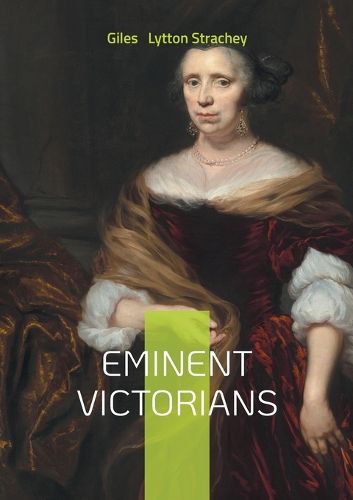Readings Newsletter
Become a Readings Member to make your shopping experience even easier.
Sign in or sign up for free!
You’re not far away from qualifying for FREE standard shipping within Australia
You’ve qualified for FREE standard shipping within Australia
The cart is loading…






This title is printed to order. This book may have been self-published. If so, we cannot guarantee the quality of the content. In the main most books will have gone through the editing process however some may not. We therefore suggest that you be aware of this before ordering this book. If in doubt check either the author or publisher’s details as we are unable to accept any returns unless they are faulty. Please contact us if you have any questions.
Lytton Stracheys Eminent Victorians redefined biographical writing with its incisive, irreverent portraits of four iconic 19th-century figures. Published in 1918, this groundbreaking work dismantles Victorian hagiography through sharp psychological insight and modernist irony. Strachey, a central figure in the Bloomsbury Group, dissects Cardinal Mannings ecclesiastical ambition, Florence Nightingales complex legacy, Dr. Thomas Arnolds educational reforms, and General Gordons imperial contradictions. The book opens with Mannings rise to power within the Catholic Church, contrasting his spiritual zeal with political maneuvering. Strachey juxtaposes Nightingales public image as the Lady with the Lamp against her obsessive, domineering private persona. In his critique of Dr. Arnold, he questions the moral rigidity behind Rugby Schools educational ideals. The final portrait of Gordon captures the tragic absurdity of British imperialism during the Khartoum siege. Stracheys prose blends wit with meticulous research, situating the work within categories like Modernist Literature, Historical Biography, and Cultural Criticism. By focusing on flaws rather than virtues, he exposes the tensions between public myth and private reality, challenging the idolization of Victorian heroes. The narratives fragmented structure and subjective perspective reflect Bloomsburys rejection of traditional storytelling. This edition includes critical annotations contextualizing Stracheys anti-establishment stance in post-World War I Britain. Eminent Victorians remains essential reading for understanding how biography evolved into a tool for cultural critique.
$9.00 standard shipping within Australia
FREE standard shipping within Australia for orders over $100.00
Express & International shipping calculated at checkout
Stock availability can be subject to change without notice. We recommend calling the shop or contacting our online team to check availability of low stock items. Please see our Shopping Online page for more details.
This title is printed to order. This book may have been self-published. If so, we cannot guarantee the quality of the content. In the main most books will have gone through the editing process however some may not. We therefore suggest that you be aware of this before ordering this book. If in doubt check either the author or publisher’s details as we are unable to accept any returns unless they are faulty. Please contact us if you have any questions.
Lytton Stracheys Eminent Victorians redefined biographical writing with its incisive, irreverent portraits of four iconic 19th-century figures. Published in 1918, this groundbreaking work dismantles Victorian hagiography through sharp psychological insight and modernist irony. Strachey, a central figure in the Bloomsbury Group, dissects Cardinal Mannings ecclesiastical ambition, Florence Nightingales complex legacy, Dr. Thomas Arnolds educational reforms, and General Gordons imperial contradictions. The book opens with Mannings rise to power within the Catholic Church, contrasting his spiritual zeal with political maneuvering. Strachey juxtaposes Nightingales public image as the Lady with the Lamp against her obsessive, domineering private persona. In his critique of Dr. Arnold, he questions the moral rigidity behind Rugby Schools educational ideals. The final portrait of Gordon captures the tragic absurdity of British imperialism during the Khartoum siege. Stracheys prose blends wit with meticulous research, situating the work within categories like Modernist Literature, Historical Biography, and Cultural Criticism. By focusing on flaws rather than virtues, he exposes the tensions between public myth and private reality, challenging the idolization of Victorian heroes. The narratives fragmented structure and subjective perspective reflect Bloomsburys rejection of traditional storytelling. This edition includes critical annotations contextualizing Stracheys anti-establishment stance in post-World War I Britain. Eminent Victorians remains essential reading for understanding how biography evolved into a tool for cultural critique.